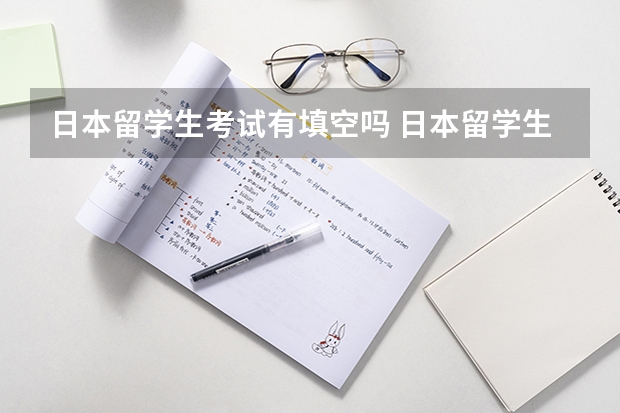雅思口语的10大技巧(雅思口语6.5分以上应试技巧分析)
2024-01-10 15:13:29 | 合力留学网
本文目录一览:

雅思口语的10大技巧
雅思口语考中常遇到有话题没准备,考场上紧张发抖遇到话题没背过怎么办。下面环球青藤小编整理了雅思口语的10大技巧。希望可以帮到大。雅思考时如何才能在考官面前展现的英语口语?下面为考生们整理了想要拿到雅思口语技巧。
1. Listen to yourself. 如果你听不到自己的发音问题,要纠正很难了。着把你将的话录下来并和英语为母语人士将的对比一下。应对雅思口语非常有效。
2. Slow down! 很多英语学习者常说语速太快容易养成他们的坏习惯。由于太快而模糊不清是口语考的大忌。所以我们要accuracy 然后才是fluency,每天操练一些基本语言以单音节开始,然后单词,把几个词连在一起,组成句子。这样你能慢慢开始表达自己的思想了。
3. Picture it... 闭上你的眼睛并在说出口之前想一想如何发这个音。想象出口型和脸部动作。这个可以配合看电影来做,留意Hollywood的明星是怎么样一字一句的说出那些令人神魂颠倒的话语的。
4. Get physical! 发音是个形体动作。要学会嘴巴的发声方法和移动肌肉的方式。每天集中训练几个音。你发this, thank, they,和little, wool等单词困难吗?发‘th’,将你的舌头放在齿间(不要咬住)并从口中吐气。感受气流从你的舌间吹过。
5. Watch yourself. 站在镜子前查看当你发某些固定音时的嘴型,唇型和舌头的位置。雅思口语技巧教你看到的native speaker的发音对比!平时还可以把自己的发音模样录成video,仔细观察比较。
6. Copy the experts. 没有取代从专-英语母语人士处学习发音的方式。因此仔细听!听英语广播节目并看英语的电视节目和电影。尽量不要念字幕!模仿你所听到的-算你还不肯定他们说的话。
7. Practice makes perfect. 发音的问题迟迟不能解决是因为我们害怕犯错。在饭店点菜,询问方向-然后你自己表演出对话内容。别害羞!
8. Find a language buddy. 从其他人处获得反馈是非常重要的。找一个对提高英语水平同样感兴趣的朋友。着更换录音资料这样你可以互相听对方的发音。记住录完要重新听听,找出错误和闪光点啊。
9. Be poetic. 好的发音不仅是掌握单独的音节。还是对intonation (声音的升降调)和 stress (对单词中一些音节和句子中的一些单词更大声更清晰的发音)的理解。大声念一些诗歌,演讲,歌曲,集中练习单词的重音和音调。
10. Sing a song! 学习一些英语流行歌曲的歌词并跟着唱。唱歌帮助你放松并能让这些词说出来,同时帮助改进你的语音和语调。
希望上面的内容能给有需要的同学提供帮助,也希望同学们可以取得好成绩。欲想了解更多关于雅思口语技巧的相关资讯,请点击咨询上海环球青藤官网。
雅思口语6.5分以上应试技巧分析
雅思口语考试用时少,但也同样占据着雅思考试中的半壁江山,所以环球青藤初步的给一些口语比价薄弱的考生总结下,如何才能获得口语考试。考试一共分为三个部分,部分叫做“简介以及问答”。第二部分考试为“个人陈述,考官将给考生一个答题任务卡,卡上有一个相关的话题。第三部分考试为“双向讨论”,考生将与考生就第二部分中出现的话题较为抽象的部分进行双向讨论”。首先来说,模仿是非常必要的,模仿好了自己才能脱口而出,然后就是要慢慢的用技巧摆脱模仿逐渐让自己变成雅思口语的主角,其次就是对一些长句的强化记忆,如果考生想达到雅思口语6.5分以上的水平不用长句是不可能的!
环球青藤小编为考生总结了一些常说的长句,希望对考生有所帮助。
"I work in a software company as a computer programmer, which is quite a challenging job because our clients usually want us to write programs in a short period of time."
"Watching films, especially comedy, is my favorite pastime although (or, but) I don’t like films with a lot of violence or horror films."
"Yes, Chinese people do like growing flowers but since(or, but because) many people live in apartments in cities it’s not easy to grow flowers although people who have a balcony, especially retired people, sometimes grow flowers on their balcony."
"To tell you the truth, I don't play much sport nor do I walk much because I drive my car everywhere, even to my office, which is near my home although I sometimes play table tennis, which I'm quite good at. I know I'd have more energy if I did more exercise but I just don't seem to find the time for exercise because I'm too busy with my work."
"Well, not really, no, because although (or, even though or, despite the fact that) the apartments are all modern and clean, there are very few places for children to play outside."
"I’m interested in sport but, besides that (or, as well as that), there are many other things that I’m interested in, such as (or, like or for example or for instance) computers and music."
"When I was in Second Year of high school, I had a math’s teacher named Mr. Wang who really changed my life by inspiring me to love mathematics."
经典长句是考试中经常遇到的,上海环球青藤希望考生能够加强记忆,在考试中不至于不知所措,熟练了,即使发音不是很准,也会给主考官一个很好的映像。雅思口语6.5分以上就很轻易到达了。

雅思考官教你雅思口语PART1考试技巧
上海环球青藤为大家带来一份由雅思考官写的雅思口语part1考试技巧,各位考生可以根据雅思口语考官的建议来准备雅思口语考试。希望对大家雅思口语备考有所帮助。IELTS is set into three sections.Part 1 is generally something about you, where you are from, do you like something, what do you think of something etc.
So you can prepare before the test to answer some of these questions. Of course you can't prepare for all things, as the examiner may throw in a few curve balls (tricky). This exchange of questions is going to be about 5 minutes.
When asked a question, for example, “Where is your hometown?” you might answer“Shanghai” This is correct but hardly a worthy answer that will convince the examiner to expect a lot from you.
Give the place and then say something about it as this shows you can engage in a conversation and not just regurgitate (give) facts and names. Maybe say something about the city, location, size, the fact you might not know much about it because you left at a young age.
“I come from China's largest city Shanghai, on the coast; do you know the area of Minhang in Shanghai? That is the part of Shanghai I was born”
A bit more than just one word.
Chances are you will get a follow up question as this is a conversation and in conversations you garner (get) information from those you are talking too.
“Can you describe… to me” or “How has the city changed” or “What do you like/don't like… about…” or “What are the people like” or "Who lives in your neighbourhood" or"Where do you buy groceries"
Answer how you feel. This isn't a test on facts, if you lie all the way through then be prepared as lying or non-truths can come back to haunt you.
“I come from the state of Nanjing in Beijing, next to India” Completely wrong but no one is taking notes on that. You will get a follow up question about it so chances are you will have todig yourself out of that hole (talk your way out of a lie). The truth is often easier to talk about.
There is a good chance you will also be asked about school or work as that is one of the main questions asked to someone you don't know.
If you are in school then maybe something about enjoying school or not enjoying school or maybe something about a topic in school, why do you study that?
If you are working then questions about what your job might be, how long have you been there, do you like it, will you stay long?
Again you don't have to tell the truth, maybe just half truths in case you feel you shouldn't give out too much information.
“I am an International spy here to assassinate you”
If you feel uncomfortable about a question then, just as in a conversation, say so and give the reason in a polite way. Politeness goes a long way. The examiner will understand as they are nice people and will try to reword the question so it isn't so invasive (direct) but they will also be able to tell if you are saying that just to bypass a question you find difficult or just don't like.
Other questions are likely to be about basic everyday things. Something about your family, neighbours, workmates, perhaps the weather or something to do with food or shopping. These are everyday things, or what you might ask someone you just met. Every question will likely have a follow up related to them. They are direct questions about the topic.
So food questions may deal with local dishes or if you like sweet food or who should do the cooking and why?
Something about your family might be the size of the family, what someone in the family does, your role in the family etc.
Be clear and precise, don't go off topic too much and don't repeat, don't repeat what you want to say. Be yourself, take a deep breath before you speak and if you spend a second thinking about it before you start talking, then nod in acknowledgement to the question. A little dead air for a second or two is fine as that is natural in conversations. A second or two, not five or 10 seconds.
Here are some other topics to think about. You can probably answer questions on them in your native tongue so now practice using English only.
Family, Language, your routine, holidays and festivals, travel, sport, Foreigners in China, Entertainment like TV and reading, cultural areas like art and architecture.
There is something called the 5Ws of Who What Where When Why and How. Basic words used to gather information. Maybe 'Have' and 'Will' should be in there too.
Pick a topic and try making questions using the Ws along with how, have and will. This isn't how questions are chosen but it is good way to practice and to help you anticipate the next question.
Like Sun Tzu says, "If you know your enemies and know yourself, you will not be imperilled in a hundred battles... if you do not know your enemies nor yourself, you will be imperilled in every single battle." The questions are the battle not the examiner. 以上就是合力留学网小编为大家带来的内容了,想要了解更多相关信息,请关注合力留学网。

雅思口语应试技巧思路拓展熟悉雅思口语考试的同学们知道,虽然口语话题种类繁多,但问题的形式并不那么复杂,甚至可以总结出一定的模式。今天上海环球青藤的卢好雨老师来谈一谈雅思口语应试技巧之思路拓展。以Part1为例,无论话题是study,cooking,还是city,都有可能会问到“Doyoulikeit?”。这类问题看似简单易懂,但实际情况却是,不少同学回答完“Yes/No”以后就不知道如何

雅思口语培训要去哪学雅思口语培训机构有新东方雅思、新航道、环球教育。1、新东方雅思:该机构是国内知名的教育培训机构。其雅思口语培训备受好评,教学内容丰富,师资力量雄厚。机构具有的优势也很多,比如师资力量强,课程服务体系完善等,新东方经过近三十年的发展,有了一大批教学经验丰富的老师。这些老师对雅思考试研究颇深,深谙雅思考试点,可以帮助学生快速提高分数。新东方的课程服务体系在行

请问2023.4.5雅思考试石家庄考点口语考试时间您好,我是专注留学考试规划和留学咨询的小钟老师。选择留学是人生重要的决策之一,而作为您的指导,我非常高兴能为您提供最准确的留学解答和规划。无论您的问题是关于考试准备、专业选择、申请流程还是学校信息,我都在这里为您解答。更多留学资讯和学校招生介绍,欢迎随时访问。下文由小钟老师雅思频道为您提供《2023.4.5雅思考试石家庄考点口语考试时间

雅思口语都用简单句可以得几分啊环球教育老师为同学们总结雅思口语考试必备问题如下,希望对您的备考有所帮助~1.What'syourname?2.Doesyournamehaveanyspecialmeaning?3.Wherewereyoucomefrom?4.Whatkindoflandscapesurroundsyourhometown?5.Whatisth

生死时速!雅思口语part2如何利用黄金60秒生死时速!雅思口语part2如何利用黄金60秒!烤鸭中的老鸟应该都知道,在雅思口语Part2中,但答题之前,你有近一分钟时间进行准备。很多考生对这段准备时间有所轻视,要么因为自己抽到的话题恰好准备过了,所以觉得这一分钟可有可无;要么自己抽到了压根没有准备过的话题,一时间慌了神。再加上不知怎样做笔记,一分钟很快就过去了。其实这60s可谓是秒秒似黄金

俄罗斯留学申请流程和步骤一览表留学生去俄罗斯读书,需要认真的准备申请,首先要熟悉申请的基本流程,在进行留学的具体安排。和来一起看看俄罗斯留学申请流程和步骤一览表。申请流程1、准备·办理申请材料:护照、成绩单公证书、照片等。·审查递交的申请材料,并向国外学校递交申请材料。·准备经济担保金:中国银行存款6000美金或5万人民币以上,存在学生名下。2、取得

学雅思,先雅思分不到5分,韦博:一对一价格2万5千多,环球雅思6人班2万1千多,到底选哪个求解选离家近去着方便/去着环境各方面自己感觉舒服/老师长得帅或者美让你想学习的那个……如果这些都差不多就选1对1,原因是可以和老师随便交流没有心理负担……我之前也上过雅思班,成绩雅思8/8/7/7.5总分7.5托福29/28/23/27总分107GRE也不错,都是只考了一次出的分数,现在在英国好

雅思留学学费雅思留学学费具体如下:普通学术类雅思考试报名费2020。用于英国签证及移民的雅思考试报名费2070。雅思生活技能类考试报名费1550。雅思转考/退考费420。雅思考试(IELTS)是听说读写四项英语交流能力的测试。每年,全球有超过350万人次在140个国家和地区参加雅思考试。雅思已成为全球英语测评领导者。全球超过10,000所院校机构所认可。无
-
 英国留学生考试怎么考 高中去英国留学需要参加什么考试
英国留学生考试怎么考 高中去英国留学需要参加什么考试2023-09-08 22:43:45
-
 日本留学生考试有填空吗 日本留学生考试常识解析
日本留学生考试有填空吗 日本留学生考试常识解析2023-09-06 09:43:20
-
 留学生法考怎么报名考试 司法考试的报名条件是怎样的?
留学生法考怎么报名考试 司法考试的报名条件是怎样的?2023-09-09 10:03:29
-
 艺考外国留学生怎么考试 艺术留学生应该了解的留学知识--VA艺术留学
艺考外国留学生怎么考试 艺术留学生应该了解的留学知识--VA艺术留学2023-09-09 09:56:18
-
 留学生需要考试吗现在 日本留学需要参加英语考试吗?
留学生需要考试吗现在 日本留学需要参加英语考试吗?2023-09-05 12:52:58
-
 外国留学生国内招生考试 留学生回国考研条件有哪些
外国留学生国内招生考试 留学生回国考研条件有哪些2023-09-01 03:30:44
